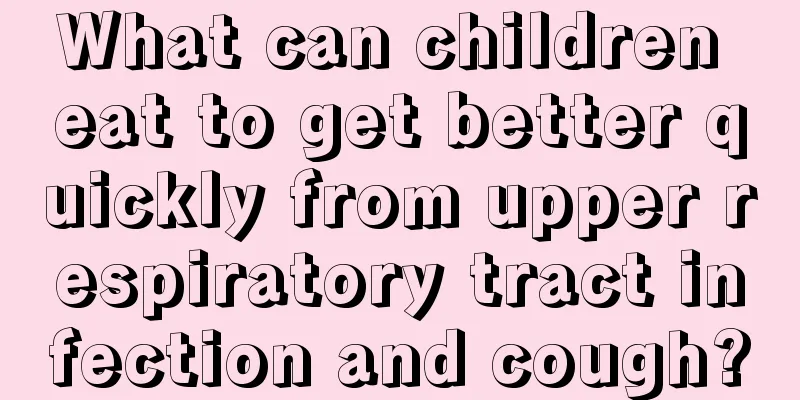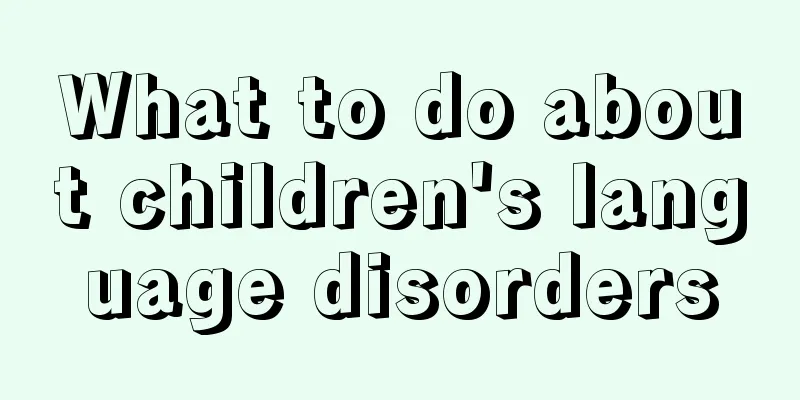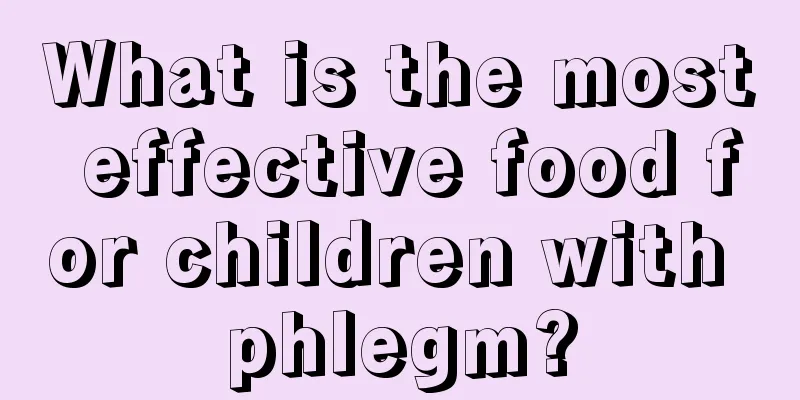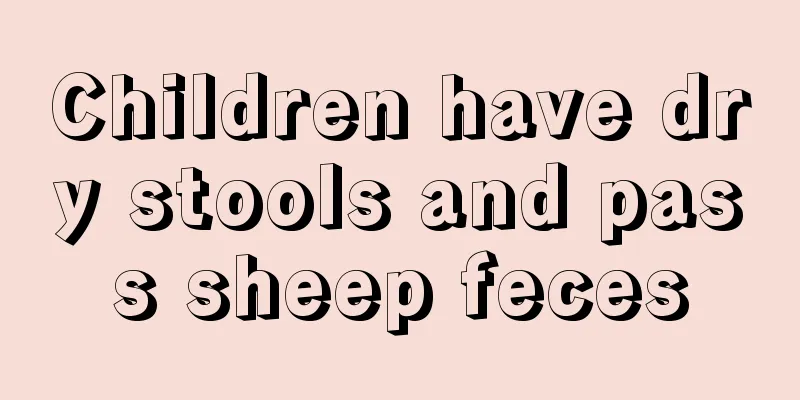What should children eat when they have a fever?
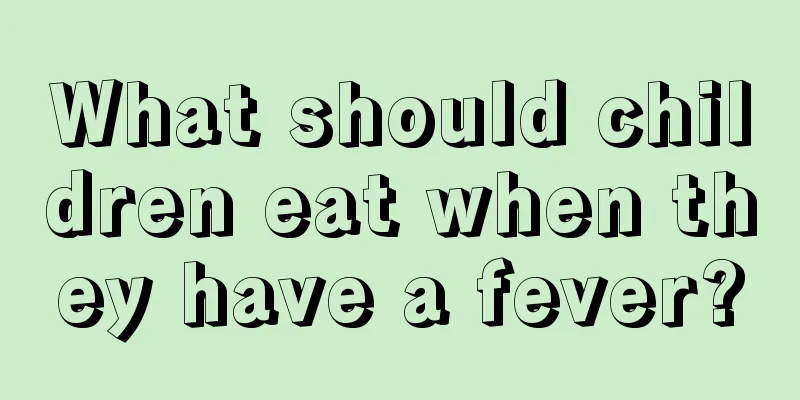
|
Every parent hopes that their children can grow up healthy and happy, but every child has a different physique and will always be troubled by some diseases. We all know that children grow very fast and have low immunity. They are particularly prone to colds and fevers when the seasons change. However, once a child has a fever, it will have a great impact on their health. During treatment, the diet must also be adjusted. Let's take a look at what children should eat when they have a fever. What should children eat when they have a fever? (1) Milk. Milk can provide children with a certain amount of protein, and adding an appropriate amount of rice soup can provide some carbohydrates. (2) Rice soup. Rice soup can provide children with carbohydrates, and it has sufficient water content, making it easier for sick children to absorb it through their stomachs. Boil the rice until it is soft and remove the residue to get rice soup. (3) Mung bean soup. Mung beans are benign and have the effects of clearing away heat, detoxifying and relieving summer heat. (4) Fresh fruit juice. In summer, you can drink watermelon juice, which has the effects of clearing away heat, quenching thirst, and diuresis; in autumn and winter, you can drink fresh pear juice, which has the effects of moistening the lungs, clearing the heart, relieving cough, and removing phlegm; fresh orange juice has the effects of removing dampness, resolving phlegm, clearing the lungs, and unblocking the meridians. Common semi-liquid foods include porridge, eggs, and soft noodles. It is worth noting that liquid food is generally consumed during the acute phase of illness, and semi-liquid food is consumed during the recovery phase or fever-reducing phase. If a child with a fever has a poor appetite, do not force him to eat, so as to avoid stomach discomfort and vomiting after eating, but be sure to pay attention to replenishing water. In addition, do not suddenly add food that the child has not eaten before during the fever period to avoid diarrhea. How to adjust the diet when children have a cold and fever? 1. Stay hydrated Water is better than medicine. When you have a fever and sweat a lot, it is necessary to drink warm water frequently to replenish your body. For infants under six months old, continue to breastfeed. Breast milk is easy to digest, can meet nutritional needs, and replenish water. For artificial feeding, you can feed diluted whole milk, that is, 2 parts of milk powder plus 1 part of water (2:1). Although the baby's milk intake is reduced at this time, the water is supplemented, which is more conducive to the baby's digestion and absorption. It is advisable for young children to drink boiled water when they have a fever. They can be fed some boiled water appropriately to supplement the body's vitamin C and enhance disease resistance. Drink enough water to keep your lips moisturized, but don't drink too much. 2. Liquid diet For young children with fever, the diet should mainly consist of liquid food, such as milk, lotus root powder, milk (with less oil), etc. You can also drink some mung bean soup or ice watermelon to help cool down, promote diuresis and fight disease. However, for infants (less than 6 months old) with diarrhea, who have poor resistance, weak gastric motility, and poor tolerance of gastric mucosa, cold drinks are not conducive to physical recovery and should be avoided. When the child's body temperature drops and his appetite improves, he can be fed semi-liquid food, such as minced meat porridge, noodles, rice porridge, egg drop porridge, and some easily digestible food (fish). The diet should be light and easily digestible, with less oil and salt, and small meals. Spicy and irritating foods should be avoided. But there is no need to avoid certain foods to prevent malnutrition and decreased resistance. The above is an introduction to what children should eat when they have a fever. After understanding it, we know that children can eat more light foods during a fever, not too greasy foods, and can eat more vegetables or fruits. In addition, they should also develop the habit of drinking boiled water. In addition, in order to prevent children from getting sick, they must do more outdoor activities. |
<<: What to do if your child doesn't want to eat
>>: What is the correct way to take Icoxin?
Recommend
Newborn baby's bulging belly
In life, many children have bulging bellies. Most...
How long does it take for neonatal eczema to heal?
Eczema is a very common symptom. Eczema can occur...
What to do if your child suddenly coughs in the middle of the night
What should we do if our child suddenly coughs in...
Why is the baby breathing heavily?
Human breathing is the process of absorbing oxyge...
Why does my baby's poop have curds of milk?
Babies in their early childhood have relatively p...
Nursing of intussusception in children
Generally, intestinal intussusception occurs more...
What medicine should children take to reduce internal heat? These prescriptions are invaluable!
The problem of children getting angry needs to at...
White spots on baby's face
Many parents may have noticed that their babies h...
Why is the child's urine white?
How unimportant children are in people’s eyes now...
Baby has eye bags and dark circles
It is a common situation for babies to have dark ...
What is the effective treatment for mumps in children?
Children are easily affected by mumps. Parents sh...
What should I do if my three and a half month old baby has diarrhea?
Infant and young child diarrhea, also known as di...
What are the causes of milk allergy in babies?
When the baby is young and cannot eat complementa...
What should children eat to nourish their brains?
Nowadays, many young mothers like to buy various ...
What is the reason for children's late tooth replacement?
Tooth replacement is an inevitable experience for...



